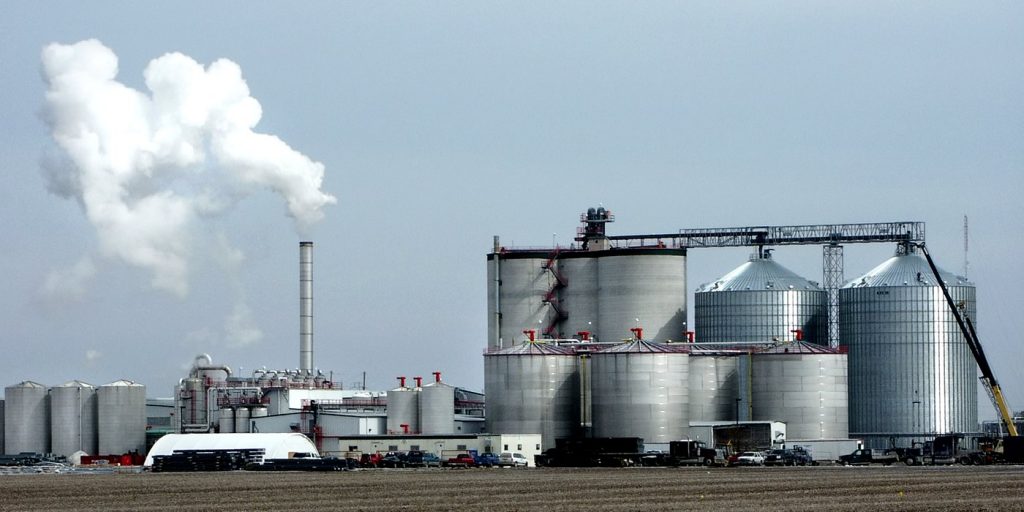
The Niger Delta, an area with a chequered past of exploitation, is set to benefit from a renewable energy plant and an agriculture processing project providing electricity, jobs and economic empowerment
Asanita Agricultural Processing Company has secured funding to build a renewable energy power plant and a cassava processing to ethanol plant in Southern Nigeria. The project located on a 40-hectare estate in Edo State in the Niger Delta region, will produce 50,000 litres per day of ethanol and deliver electricity for up to 300 homes. By creating hundreds of jobs for illegal migrant returnees and boosting the local economy, it also aims to discourage human tracking and illegal migration.
The power plant is designed to reduce carbon emission by converting all the biomass to energy. A combination of biogas produced from the effluent of the ethanol plant, and combustion of waste cassava peel and other agricultural waste, likes palm kernel shell, saw dust and rice husk, are readily available in Edo State. The system combusts the biomass with high oxygen and a triple filter system to guarantee that negligible smoke or CO2 is released to the atmosphere. The ash waste from the process is then used as fertilizer on the region’s cassava fields.
The Niger Delta region is infamous for its history of conflict between the international oil companies and residents due to the exploration and subsequent exploitation of local communities. Asanita is working closely with the Edo State Taskforce Against Human Trafficking to improve the region through productive engagement, economic growth and prosperity for the most vulnerable in society especially women and the youths. Thousands of Farmers in the region will benefit by making revenue from their waste, which will be used as fuel for the biomass power plant, while cassava farmers will be trained to improve the yield and can sell their produce to the plant.
Related Post:
- Fundi Zwane launches her debut fragrance range, CAMAGU
- Trace X Gauteng Film Commission Filmmakers Competition Back For Fourth Edition
- Comfort Yummy For The Tummy
The UK-backed project has been self-funded by the promoters through equity and commercial loans after the Foreign, Commonwealth & Development Office paid for the development of a business plan the feasibility studies for the debt funding sourcing for the project. To further international collaboration, PIND Foundation (Foundation for Partnership Initiatives in the Niger Delta) is working with Asanita to provide capacity building and training to smallholder farmers. This project is a poverty reduction initiative that has been endorsed by the regional government.
Victor Legogie, CEO of Asanita, said: “This project is incredibly close to my heart and will enable us to not just provide renewable energy to the region and support local communities, but give economic hope to residents moving forward. It has taken a lot to get to this enterprise going and I am hugely grateful to all of partners for supporting this dream. Providing energy is just one small part of this, the good it can do for the community and economic growth in the region is truly awe-inspiring. These kinds of initiatives should certainly be encouraged and promoted across Africa.”
Ends
Notes to Editors
About Asanita Agricultural Processing Company
Asanita is a Nigerian agricultural processing company located in the Niger Delta region in South-South of the country. This region is normally known for the conflict between the International Oil companies the local people due to the exploration and subsequent exploitation of local communities. Asanita is aiming to bring a different narrative to the region – demonstrating the fact that there are other opportunities for economic growth and prosperity and creating jobs for the most vulnerable in those societies: the women and youth.
Asanita will be growing and processing cassava to produce ethanol, a product with high demand with very low domestic supply. The plant is built on a 40-hectare estate and has a production capacity of 50,000 litres per day. Asanita has partnered with other emerging market manufacturers to design a plant which runs on a biomass generating plant. This renewable energy source will also provide electricity for up to 300 homes in the area. So far, the entire project has been self-funded by the promoters through equity and commercial loans.
Biography of Victor Legogie
Victor Legogie is a visionary leader and the CEO of Asanita Nigeria. A green energy enthusiast, Victor has been involved in oil and gas projects which led him to believe that there are better ways to fuel industry and to create value for local communities. Victor is from Edo State in Nigeria, which has vast agricultural potential. The region also has social issues which he felt he could solve through the activities of his commercial venture – Asanita.
Victor holds a B.Sc. in Accounting from the University of Benin and has worked in Information Technology, providing value added services to the telecommunications industry as well as the Oil & Gas Industry.
Open to: Speaking engagements, media commentary, expert opinions.
For further information about Asanita contact Katie Skingle at [email protected] or on 01206 765544.



























